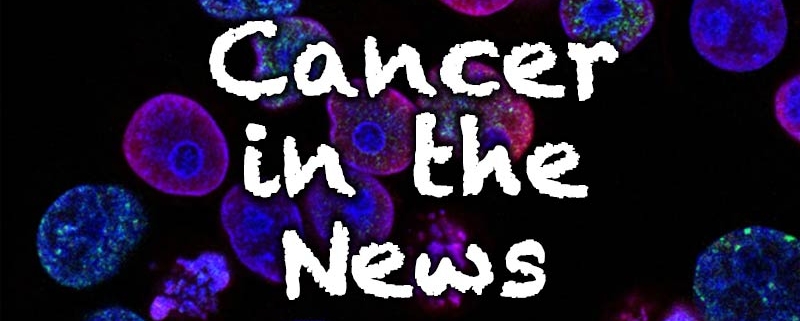New tests, treatments, and risks for cancers. Fraud and studies to participate in.
16th issue: Contents
- Lynparza reduced risk of cancer recurrence by 42% in patients with germline BRCA-mutated high-risk early breast cancer
- Blood Test for 50 Cancers Coming to US Clinics Soon
- One of the Biggest Healthcare Frauds Ever Is Still Ongoing
- Three studies you may wish to participate in to support research:
- Predicting Brain Health After Chemotherapy
- Genomic Analysis of Long-Term Survivors with Metastatic Cancer
- Risk Factor Analysis of Hereditary Breast and Ovarian Cancer
- Freezing Breast Cancer to Death Avoids Surgery
- AHA Statement Flags CardioVascular Risk of Hormonal Cancer Therapies
- Biologic Drug Nearly Doubles Overall Survival in Metastatic Triple-Negative Breast Cancer
• Lynparza reduced risk of cancer recurrence by 42% in patients with germline BRCA-mutated high-risk early breast cancers
“Results showed Lynparza (olaparib) demonstrated a statistically significant and clinically meaningful improvement in invasive disease-free survival (iDFS) versus a placebo in the adjuvant treatment of patients with germline BRCA-mutated (gBRCAm), (HER2)-negative early breast cancer.”
• Blood Test for 50 Cancers Coming to US Clinics Soon
“The Galleri blood test is recommended for use in adults with an elevated risk for cancer, such as those aged 50 or older. It is intended to detect cancer signals and to predict where in the body the cancer signal is located.”
My two cents: Exciting, but has limited availability right now (only the Providence Health system in Renton, WA offers it). “An expert cautions that this test should be considered as being under clinical investigation.”
• One of the Biggest Healthcare Frauds Ever Is Still Ongoing
“Seniors were typically approached via health fairs, senior centers, and telemarketing and offered a “free” test, which gathers DNA with a quick cotton swab of the cheek. They then mail it to a lab. Once Medicare started to deny some of these charges, the criminals were then sending the bills to the Medicare beneficiary.”
My two cents: This is something I might have fallen for, given the temptation to have genetic testing of my cancer.
• Three studies you may wish to participate in to support research:
- Predicting Brain Health After Chemotherapy
- Genomic Analysis of Long-Term Survivors with Metastatic Cancer
- Risk Factor Analysis of Hereditary Breast and Ovarian Cancer
My two cents: We are lucky to have Dr. Susan Love in our corner and being part of her “research army” is a way to pay it forward.
Predicting Brain Health After Chemotherapy
“We need women aged 35 to 60 with a history of breast cancer who have completed chemotherapy treatment at least 1 month ago. We also need healthy women to help researchers gain a better understanding of the effects of chemotherapy on the brain.”
Genomic Analysis of Long-Term Survivors with Metastatic Cancer
“To gain insight into why some people live for many years following a metastatic breast cancer diagnosis, researchers want to learn more about the medical history and health habits of people living with metastatic breast cancer.”
My two cents: I signed up for this one!
Risk Factor Analysis of Hereditary Breast and Ovarian Cancer
“The study is trying to identify which hormonal, reproductive, and lifestyle factors may increase cancer risk in women with a BRCA1, BRCA2, and/or PALB2 mutation who goes on to develop breast and/or ovarian cancer.”
• Freezing Breast Cancer to Death Avoids Surgery
“Cryoablation, or freezing tissue to death, can be an effective treatment for small, low-risk, early-stage breast cancers in older patients.”
My two cents: Europe has approved it and is using it for many cancers and the US has approved it for prostate cancer. The FDA has been slow to approve this for breast cancer and it isn’t clear why. Hopefully, the results of the study will hurry that along.
• AHA Statement Flags CardioVascular Risk of Hormonal Cancer Therapies
“Hormonal therapies for the treatment of hormone-dependent breast and prostate cancer could raise the risk for myocardial infarction (MI) and stroke. Patients need to be closely monitored to allow early detection and treatment of cardiovascular disease (CVD).”
My two cents: Please make sure you and your doctor are closely monitoring your heart health if you are on hormone therapy.
• Biologic Drug Nearly Doubles Overall Survival in Metastatic Triple-Negative Breast Cancers
“Sacituzumab Govitecan can cut the risk of disease progression or death by 59% and nearly double median overall survival among women with metastatic triple-negative breast cancer.”
My two cents: Talk to your oncologist about this if you are triple-negative. Note: It didn’t help everybody and side effects were significant in some.
Cancer in the News has a posting frequency of once every two weeks to once a month.
(Or, in this case, once every two month. Sorry!)


